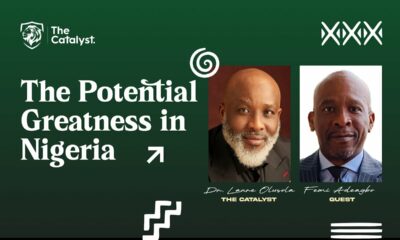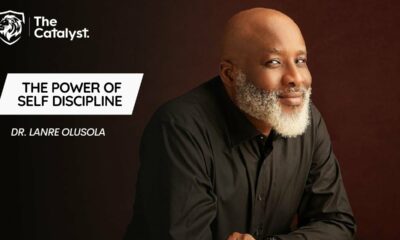Features
Be Transformed with The Catalyst: Applying the Kaizen Principle to Become More Efficient
An example of a kaizen approach would be to look at everything you do in a typical workflow – that means every step you take, from booting up the computer, to making coffee, to answering emails, to uploading articles. You’d then watch out for the steps/tasks that take the longest, and come up with ways to make them more efficient, thereby gaining more time and freedom.

Kaizen is a Japanese word for “improvement”, however, it is also often used in a more specific concept: as an approach to project management and efficiency.
The term was born in manufacturing, where it described the way in which making a small change to a process in an assembly line could result in huge increases in efficiency and net profit, thanks to automation and force multiplication. This concept quickly caught on in the worlds of business and self-development. In both contexts, small changes can add up to big impact.
Often, kaizen is taken to mean that you should engage in micro-workouts and the likes, meaning that you should try to form new habits by doing something extremely small and easy.
While this can be useful advice in the right context, it is not true kaizen.
An example of a kaizen approach would be to look at everything you do in a typical workflow – that means every step you take, from booting up the computer, to making coffee, to answering emails, to uploading articles. You’d then watch out for the steps/tasks that take the longest, and come up with ways to make them more efficient, thereby gaining more time and freedom.
For instance, if you fix your computer’s booting speed by 5 minutes, that could result in 25 minutes of extra time per week. What if you stopped taking so many coffee breaks? Or what if you slightly altered the order of your main tasks, such that you didn’t need to switch between programs so much?
In my book, Good2Better, I explain how a few changes like this could save you hours every week, and make you significantly more productive. What does this have to do with getting what you want from life? Simple, you can take this exact approach to your current lifestyle in order to make time and energy for the things you want to do. That might mean investing in a dishwasher so that you can spend less time washing up in the evening, or even getting a cleaner if you can afford one.
We all know that there’s a lot of traffic in Lagos, and people spend about 3-4 hours in traffic each day. If you live in Lagos and drive yourself, you might want to get a driver so that you free yourself to use those 3-4 hours more wisely each day. If you live in New York, London, and so on, you can get on the train or bus.
It might also mean doing some kind of tasks towards achieving a specific goal that really matters to you (like reading a book or doing an assignment) on the commute home, such that you don’t need to do it when you get back in the evening. You can do much more by being more efficient with your time – this kind of thinking makes your daily grind more efficient.
Now, this doesn’t mean you should stop doing the things you love, or spend all your time working without rest. In my book, I emphasised the fact that you can’t neglect taking time off and you should do the things that you enjoy every now and then also. In the end, the most important thing is finding that balance and saving your time, while still being efficient.























